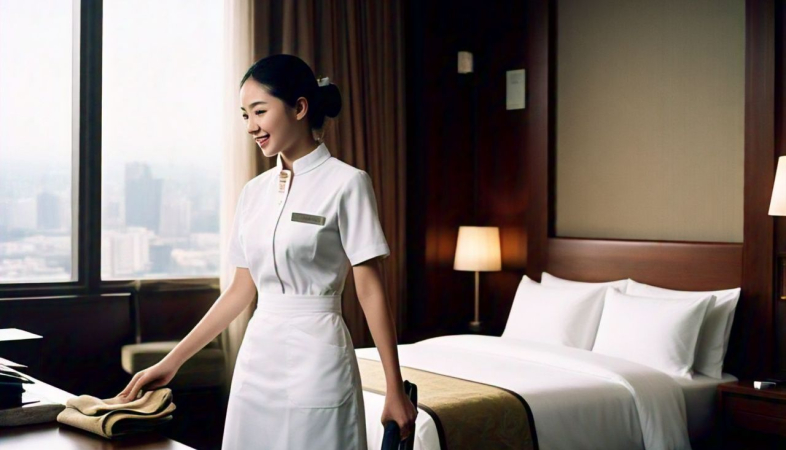
Often regarded as the backbone of hotel operations, housekeeping plays a crucial role in shaping guests' perceptions and experiences.
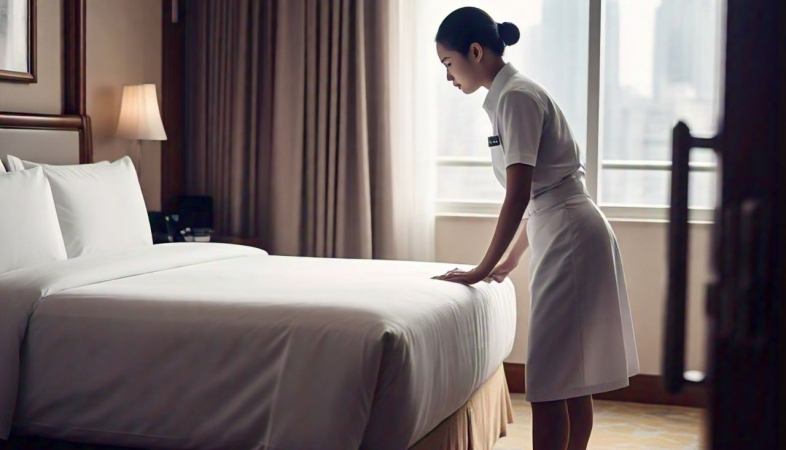
AI is proving to be a valuable asset in streamlining housekeeping operations, improving efficiency, and enhancing guest satisfaction.

The air quality in a hotel room has a direct impact on the comfort and well-being of guests, influencing their overall experience.
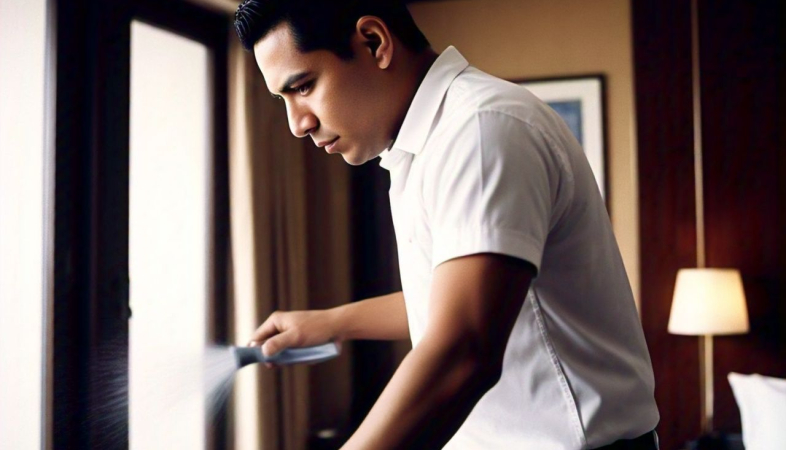
Hotels that cater effectively to long-term guests can build stronger relationships, earn repeat business, and enhance their reputation.

Housekeeping’s role in sustainable hospitality goes beyond cleanliness—it’s about creating an eco-conscious experience that benefits both the planet and the guests.
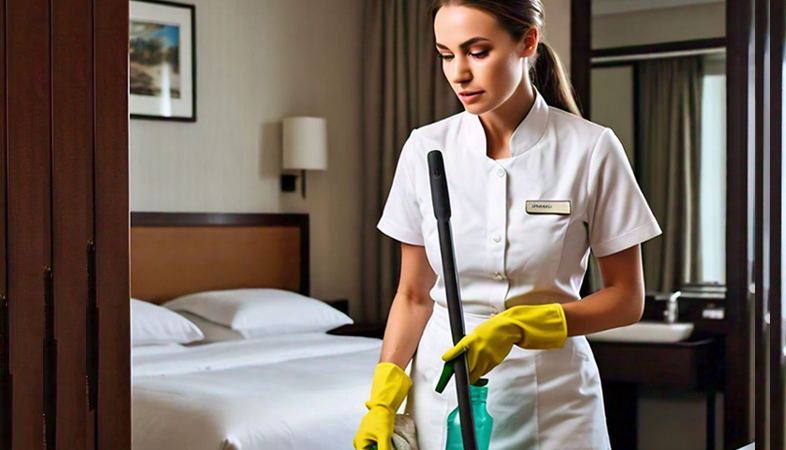
By implementing upcycling and reusing strategies, hotels can lead the way in environmental responsibility while offering guests a more eco-conscious experience.
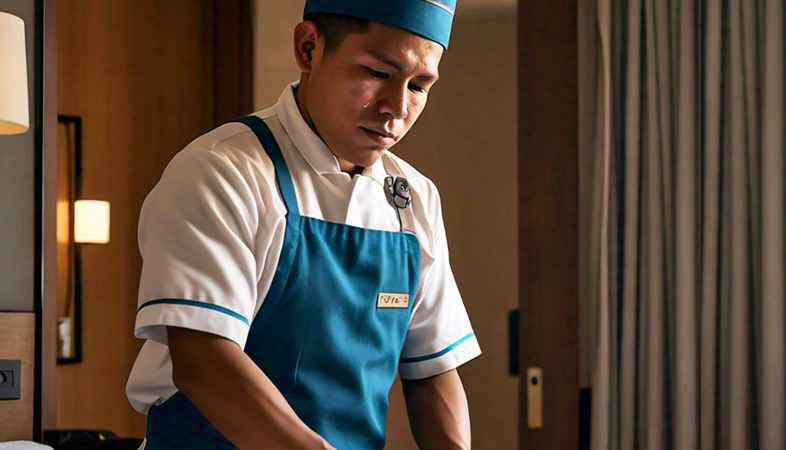
Housekeeping departments, often responsible for the bulk of a hotel's daily operations, play a crucial role in implementing sustainable practices.
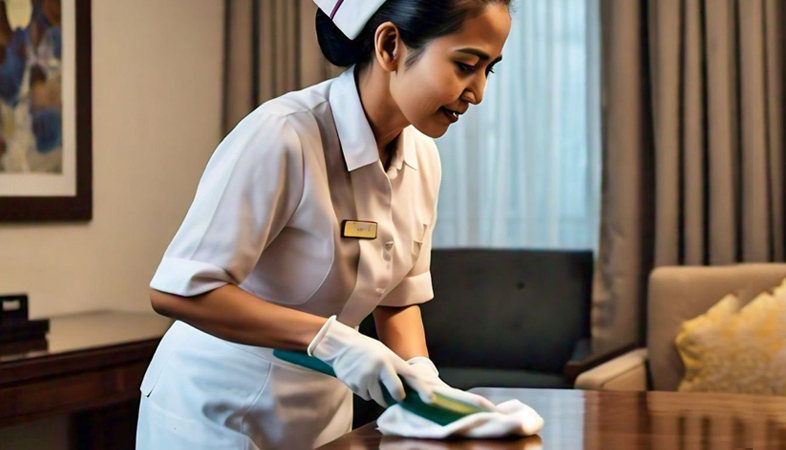
A streamlined, effective housekeeping operation can enhance the guest experience, while poor management can result in delays, complaints, and negative reviews.

Staff are expected to maintain high standards of cleanliness and service, often under tight deadlines and with little room for error.
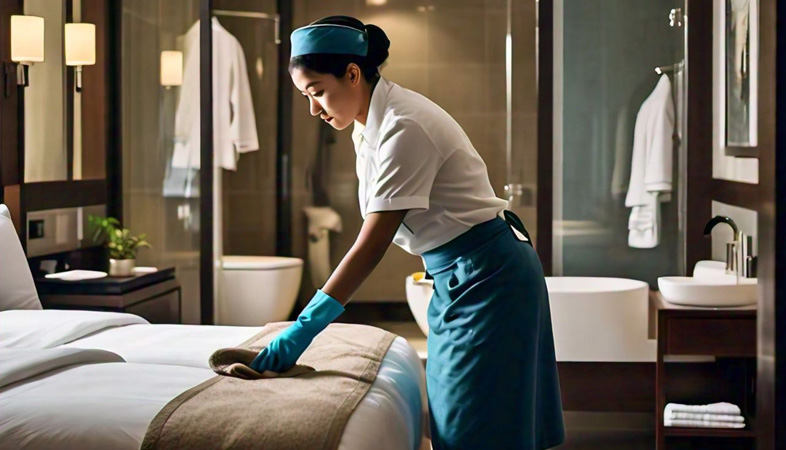
Guest service training for housekeeping teams is an essential component of a hotel’s overall service strategy.
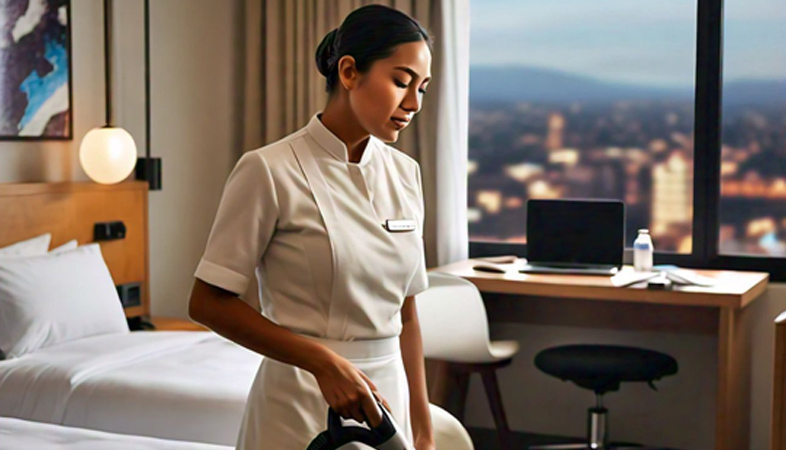
An efficient housekeeping workflow leads to a cleaner, more organized hotel, improved staff morale, and a better overall guest experience.
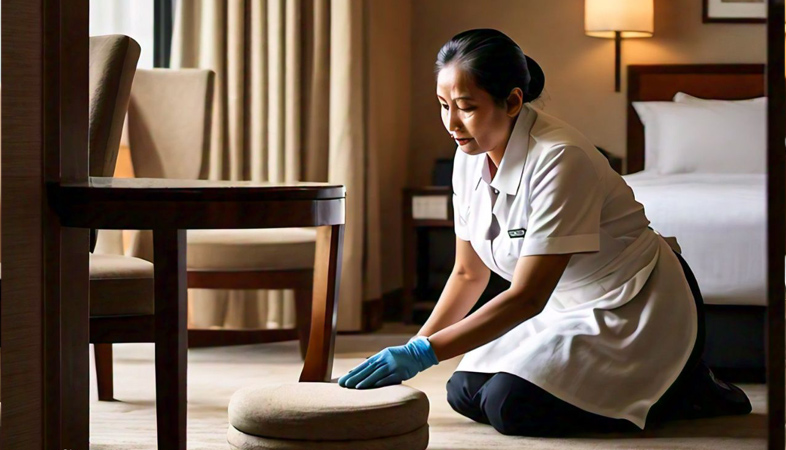
Housekeeping, a critical part of hotel operations, plays a significant role in this effort.
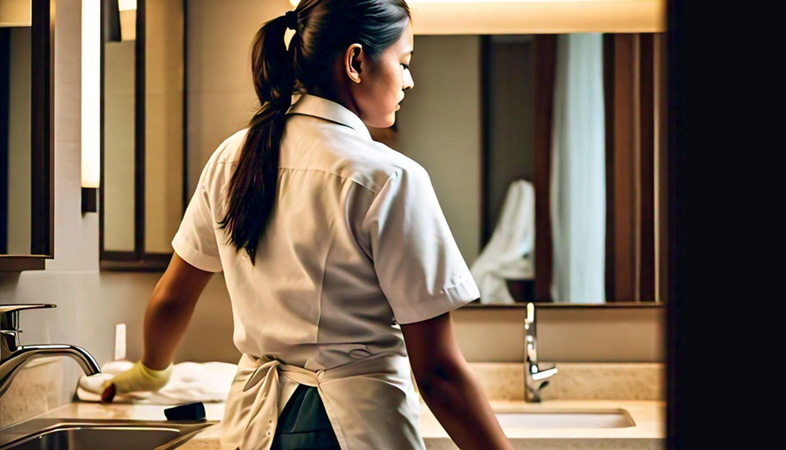
By focusing on quality and efficiency, hotels can enhance guest satisfaction, reduce costs, and maintain a high standard of service.

Housekeepers meticulously inspect every corner of the room, ensuring that every surface is clean, every item is in its place, and every detail is attended to.

Technology is transforming the housekeeping landscape, empowering hotels to deliver faster, more efficient, and more personalized service to guests.
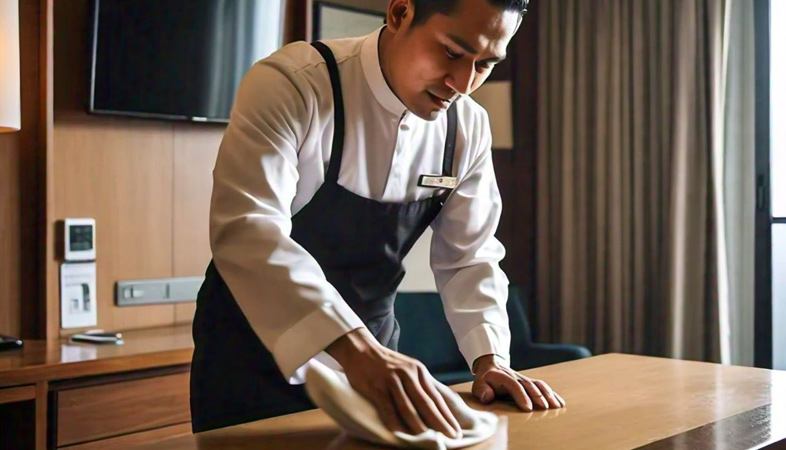
The cleanliness of guest rooms and public areas significantly influences guests' experiences and can impact their perception of the hotel brand.
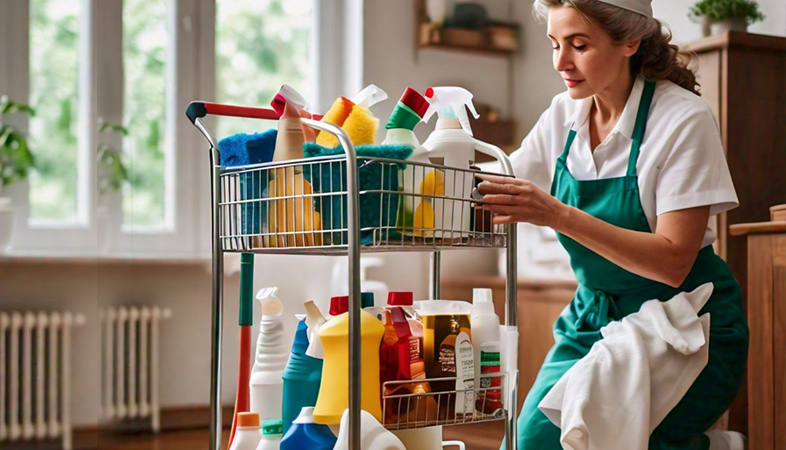
Emergency preparedness in hotel housekeeping is essential for maintaining the safety, security, and well-being of guests and staff members during crisis situations.
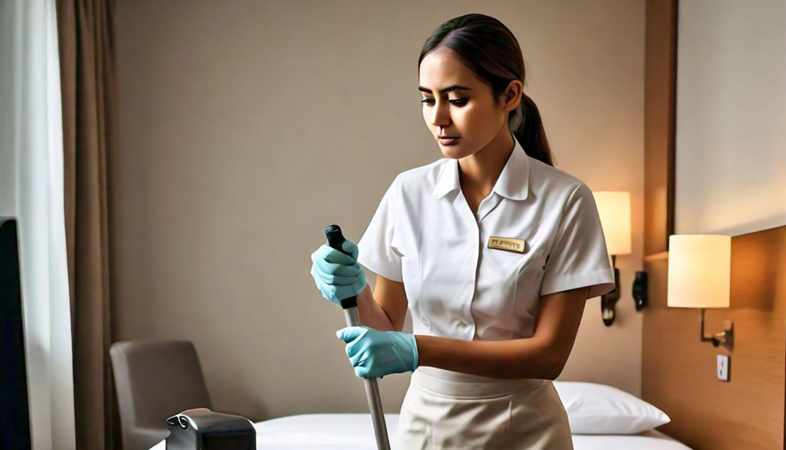
By promoting teamwork, open communication, and a supportive work environment, hotels can empower their housekeeping teams to work together effectively and efficiently.
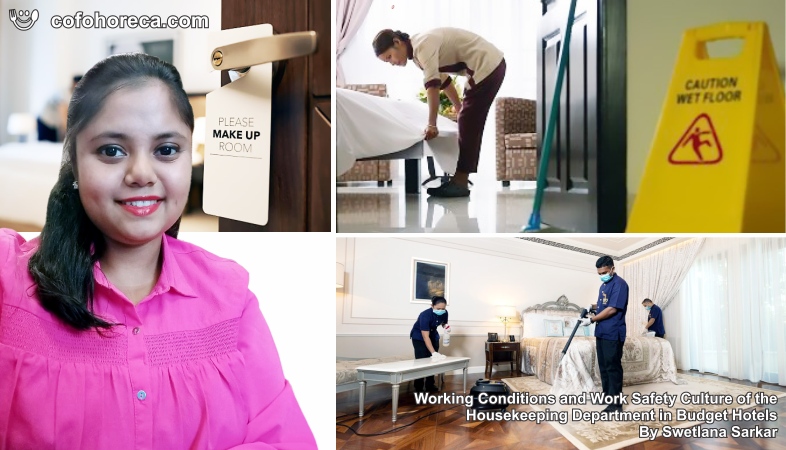
Effective housekeeping plays a pivotal role in driving productivity standards within the hotel industry.
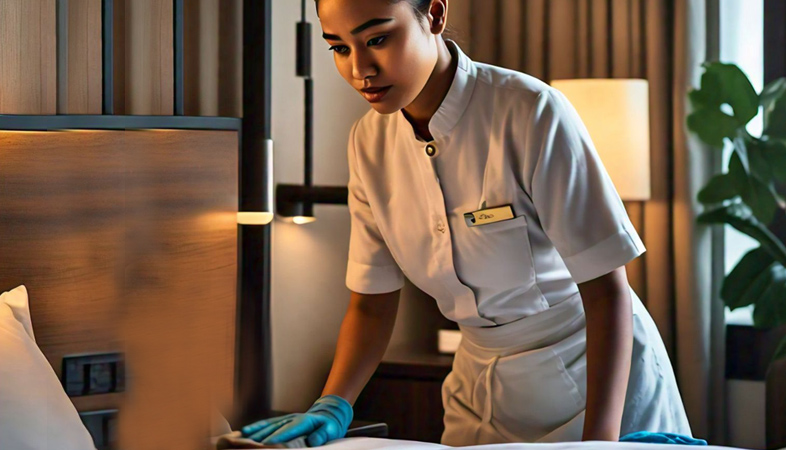
Room turnover time, for example, measures the average time it takes for housekeeping staff to clean and prepare a guest room for the next arrival.

Cross-training allows staff members to gain exposure to different roles and responsibilities within the hotel, fostering a more flexible and adaptable workforce.

The use of harsh chemicals in cleaning not only endangers the health of housekeeping staff but can also harm the environment.